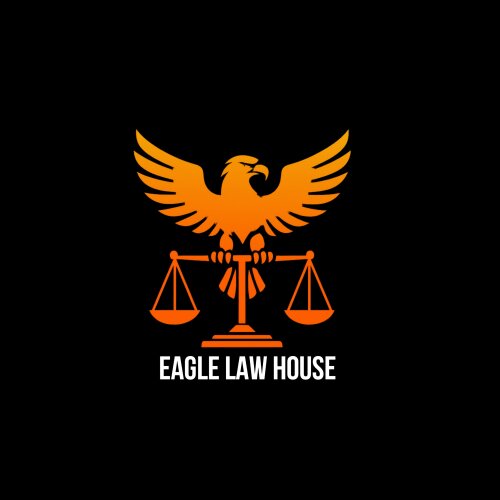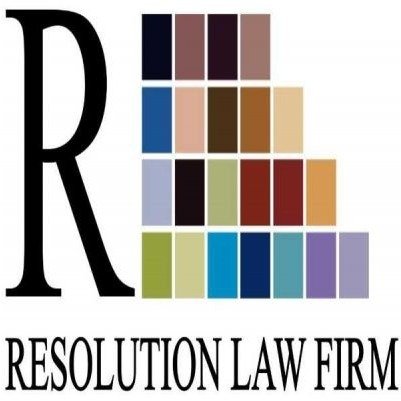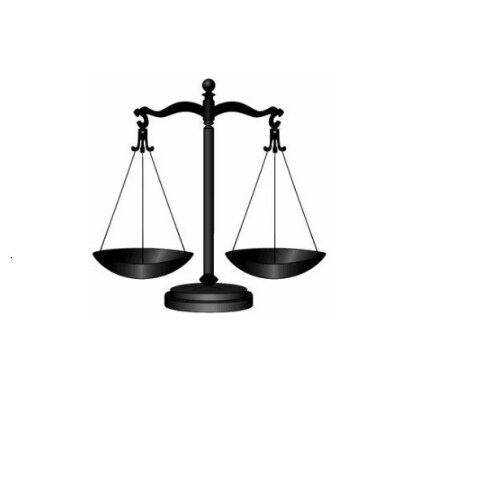Best Marriage Lawyers in Abuja
Share your needs with us, get contacted by law firms.
Free. Takes 2 min.
Free Guide to Hiring a Family Lawyer
List of the best lawyers in Abuja, Nigeria
Nigeria Marriage Legal Questions answered by Lawyers
Browse our 12 legal questions about Marriage in Nigeria and read the lawyer answers, or ask your own questions for free.
- I need more information on getting a marriage to be declared null and void since my partner is married in another country
- Can I get my marriage declared null and void if I find out my partner is married legally in another country
-
Lawyer answer by SJ Law Experts
**SJ Law Experts, Islamabad**Thank youSJ Law Experts, Islamabad [Advocates, Legal Advisors & Immigration Lawyers]
Read full answer - How much can cost me?
- Good morning. Im spanish and I would like marry with my girlfriend she is nigerian and she lives in Makurdi. We want a civil marriage. I read than this marriage can cost 50.000 nairas. How much money can cost me including your services?. And how much time we need for... Read more →
-
Lawyer answer by BUBA PARTNERS, BARRISTERS, SOLICITORS & NoTARIES
Dear [Name], Good morning, and thank you for your message. We would be pleased to assist you with your intended civil marriage in Nigeria. In Nigeria, a statutory (civil) marriage is conducted at the Federal Marriage Registry or a licensed...
Read full answer - My marriage has been separated for 9years now due to ill treatment and extended vfamily interaction
- My marriage has been separated for 9years now due to ill treatment and extended family interaction and my husband who has never felt the need to see his two children want to have joint custody of them or leaving them alone to visiting him on weekend, as their mother been... Read more →
-
Lawyer answer by Tents and Towers- Barristers & Solicitors
Hello.Having been separated for a period of more than 3 years, the court will certainly dissolve your marriage.However, the court has to resolve the issues of custody and maintenance of the children of the marriage. We can help you through...
Read full answer
About Marriage Law in Abuja, Nigeria:
Marriage in Abuja, Nigeria is governed by various laws and regulations that aim to protect the rights and responsibilities of individuals entering into a marital union. The primary legislation that addresses marriage is the Marriage Act of 1990. This act provides the legal framework for marriage, including registration, dissolution, and related matters.
Why You May Need a Lawyer:
While many marriages proceed without legal complications, there can be situations where seeking legal advice becomes necessary. Some common scenarios where you may require a lawyer's assistance include:
1. Prenuptial Agreements: If you and your partner want to establish a prenuptial agreement to protect your individual assets and liabilities, a lawyer can help ensure it is legally binding and enforceable.
2. Dissolution of Marriage: If you are considering divorce or separation, a lawyer can provide guidance on the legal process, child custody, spousal support, and property division.
3. Annulment: If you believe your marriage is void or voidable and want it legally recognized as such, a lawyer can help you understand the requirements and process for obtaining an annulment.
4. Domestic Violence: If you are facing domestic violence within your marriage, a lawyer can assist in obtaining a protection order and exploring legal remedies to ensure your safety.
5. Adoptions: If you and your spouse are interested in adopting a child, a lawyer can guide you through the legal requirements and procedures involved.
Local Laws Overview:
Under Abuja's Marriage Act, it is necessary to be of a certain age (18 years and above) and to obtain parental consent for those under the age of 21. Marriages must also be conducted by a recognized authority, such as a minister, priest, or registrar. Additionally, polygamous marriages are allowed, but certain conditions must be met.
Frequently Asked Questions:
1. Can I get married in Abuja if I am not a Nigerian citizen?
Yes, Abuja allows marriages between Nigerian citizens and individuals from other countries. However, you will need to fulfill certain requirements, such as obtaining a Certificate of Competency from the Minister of Internal Affairs.
2. How long does it take to get a marriage license in Abuja?
The process of obtaining a marriage license in Abuja usually takes around 21 days, provided all the required documents and fees are submitted correctly.
3. What are the grounds for divorce in Abuja?
Abuja recognizes both fault-based and no-fault divorces. The grounds for divorce may include adultery, cruelty, desertion, incurable insanity, or living apart for a continuous period of at least two years.
4. What property rights do spouses have in Abuja?
Generally, each spouse retains ownership of the property they acquired before the marriage. However, assets acquired during the marriage are typically regarded as jointly owned and subject to division in the event of divorce or separation.
5. Can same-sex marriages be legally recognized in Abuja?
No, same-sex marriages are not legally recognized in Abuja, as well as in the whole of Nigeria. Nigerian law defines marriage as a union between a man and a woman.
Additional Resources:
For further information and legal assistance in Abuja regarding marriage, you may find the following resources helpful:
1. The Federal Ministry of Justice: Visit their website at www.justice.gov.ng for information on marriage laws and regulations.
2. Abuja Marriage Registry: Contact the registry for guidance on marriage registration and related procedures.
3. Legal Aid Council: If you have limited financial means, you can inquire about legal aid services provided by the council to eligible individuals.
Next Steps:
If you require legal assistance in marriage-related matters in Abuja, Nigeria, it is advisable to consult with an experienced family law attorney. They will be able to assess your situation, provide tailored advice, and guide you through the necessary procedures. It is essential to gather any relevant documents and details before your initial consultation to ensure a productive discussion.
Lawzana helps you find the best lawyers and law firms in Abuja through a curated and pre-screened list of qualified legal professionals. Our platform offers rankings and detailed profiles of attorneys and law firms, allowing you to compare based on practice areas, including Marriage, experience, and client feedback.
Each profile includes a description of the firm's areas of practice, client reviews, team members and partners, year of establishment, spoken languages, office locations, contact information, social media presence, and any published articles or resources. Most firms on our platform speak English and are experienced in both local and international legal matters.
Get a quote from top-rated law firms in Abuja, Nigeria — quickly, securely, and without unnecessary hassle.
Disclaimer:
The information provided on this page is for general informational purposes only and does not constitute legal advice. While we strive to ensure the accuracy and relevance of the content, legal information may change over time, and interpretations of the law can vary. You should always consult with a qualified legal professional for advice specific to your situation.
We disclaim all liability for actions taken or not taken based on the content of this page. If you believe any information is incorrect or outdated, please contact us, and we will review and update it where appropriate.
















